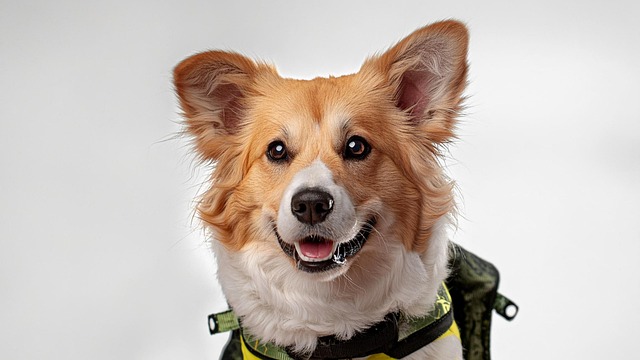
What is glaucoma in a dog?
You might notice your dog squinting more at mealtime or avoiding bright sunlight—these small changes could be early signs of a serious eye condition.
If you’ve been feeding your dog the same kibble since they were a puppy and noticed they’re now (at 8 years old) leaving meals untouched or struggling with stiff hips after eating, you might be asking: Do senior dogs really need special food? When my 10-year-old German Shepherd, Duke, started gaining weight despite eating less and having more gas, I assumed it was just “old age”—until his vet pointed out his regular adult food was too high in calories and hard on his aging digestive system. For first-time U.S. dog owners, the short answer is yes: senior dogs need different food because their bodies change dramatically as they age, and their diet has to keep up.
Aging dogs experience key physical shifts that demand dietary adjustments. Large breeds like Duke often develop joint issues by 7–8 years, while small breeds might hit their “senior” phase around 9–10 years. Their metabolism slows by up to 30%, meaning they need fewer calories to avoid obesity—a major risk factor for arthritis and heart problems. Their kidneys and liver also work less efficiently, so they need lower sodium and high-quality, easy-to-digest protein (like chicken or fish) instead of cheap fillers. Duke’s vet explained that senior food isn’t a marketing gimmick; it’s formulated to support muscle retention (critical as activity drops), joint health (with glucosamine), and digestive regularity (with fiber like pumpkin), which adult food often lacks.

To make the switch, start by consulting your vet—they’ll recommend options based on your dog’s size, health, and habits. For healthy seniors, look for AAFCO-certified “senior” or “mature adult” formulas where real meat is the first ingredient. If your dog is picky (like my neighbor’s Shih Tzu, who refused dry senior food), mix in a spoonful of wet senior food or plain, cooked sweet potato to boost appeal. For apartment-dwelling seniors who get little exercise, choose a low-calorie formula to prevent weight gain. Transition slowly: Mix 25% new food with 75% old for 3 days, then adjust the ratio over a week to avoid diarrhea. Avoid giving table scraps—even small bites of fatty food can upset their sensitive tummies.
Never scold your senior dog for not eating or gaining weight—this violates U.S. animal welfare norms and adds stress, which worsens appetite issues. Instead, offer smaller, more frequent meals if they struggle with large portions. Stay compliant with local laws: Keep their rabies and booster vaccines up to date (seniors are more vulnerable to illness) and always carry waste bags on walks—cities like Portland fine up to $175 for not cleaning up. Use positive reinforcement (a gentle belly rub after finishing a meal) to make feeding time enjoyable. When walking, stick to gentle paces if they have joint pain, and bring water—seniors dehydrate more easily.
Senior dogs need different food because their bodies need different support. With the right formula and vet guidance, you’ll help your aging pup stay active, maintain a healthy weight, and enjoy mealtime again—making their golden years happy and comfortable.

You might notice your dog squinting more at mealtime or avoiding bright sunlight—these small changes could be early signs of a serious eye condition.

Let’s set the scene: It’s a sweltering Phoenix afternoon—105°F outside—and you rushed your 2-year-old Lab mix, Cooper, on a quick walk to “get it over with.”

Let’s get real: You’re in your Miami apartment, watching your 3-year-old Corgi, Loki, struggle to climb the stairs to your second-floor unit.

Many dog owners brush off occasional scratching as just “dog behavior,” but persistent itching often signals something more—like a food allergy.

You might first notice your dog scratching more than usual—chewing at their paws until the fur looks thin, or rubbing their face against the couch nonstop.

Let’s be real: You’re standing in your Chicago apartment, watching your 3-year-old Beagle, Max, huff and puff just to climb onto the couch.